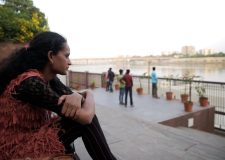Brighton General Hospital given £1.9m for makeover
Brighton General Hospital is to have a £1.9 million makeover, with the money going towards improving three buildings on the Elm Grove site.
Sussex Community NHS Trust has been given the money to carry out work on the Arundel building, Dyke building and Sussex Rehabilitation Centre.
It will be spent on upgrading a boiler at the rehabilitation centre, renovating the buildings inside and out, refurbishing lifts and toilets and modernising the electrics.
The trust said that the cash would “help to improve services for NHS patients”.
It added: “These improvements will provide a better environment to patients and staff alike.
“They will also allow the trust to relocate some children’s services in Brighton and Hove to the BGH site.”
The site is also home to services run by Brighton and Sussex University Hospitals NHS Trust (BSUH) and the Sussex Partnership NHS Foundation Trust.
BSUH, which runs the Royal Sussex County Hospital in Brighton, has been awarded £1 million for new equipment.
The money will fund virology equipment, digital dictation and a device for pulverising kidney stones, called a lithotripter, for the Princess Royal Hospital in Haywards Heath.
Simon Kirby, the Conservative MP for Brighton Kemptown, welcomed the support from the Department of Health.
Mr Kirby said: “I am pleased the government is investing more than £330 million nationally and nearly £3 million locally to improve patient services and provide state of the art equipment and facilities.”
A further £430,000 will go from the Department of Health to the Friends, Families and Travellers organisation, which is based in Brighton.
It will be spent over three years to try to ensure that gypsies and travellers receive better healthcare from the NHS.
A recent official Brighton and Hove City Council report – the Traveller Strategy Scrutiny Panel Report – highlighted the issue.
The report, agreed by the council’s cabinet on Thursday (15 March), welcomed a promise by local health chiefs to provide cultural awareness training for doctors, nurses and support staff.
It said: “We are concerned that this does not fully address the problems of frontline clinical staff, eg, GPs and dentists, and other primary healthcare staff, eg, GP surgery receptionists, lacking awareness of traveller issues and sometimes a knowledge of their statutory duties to provide services.”





















